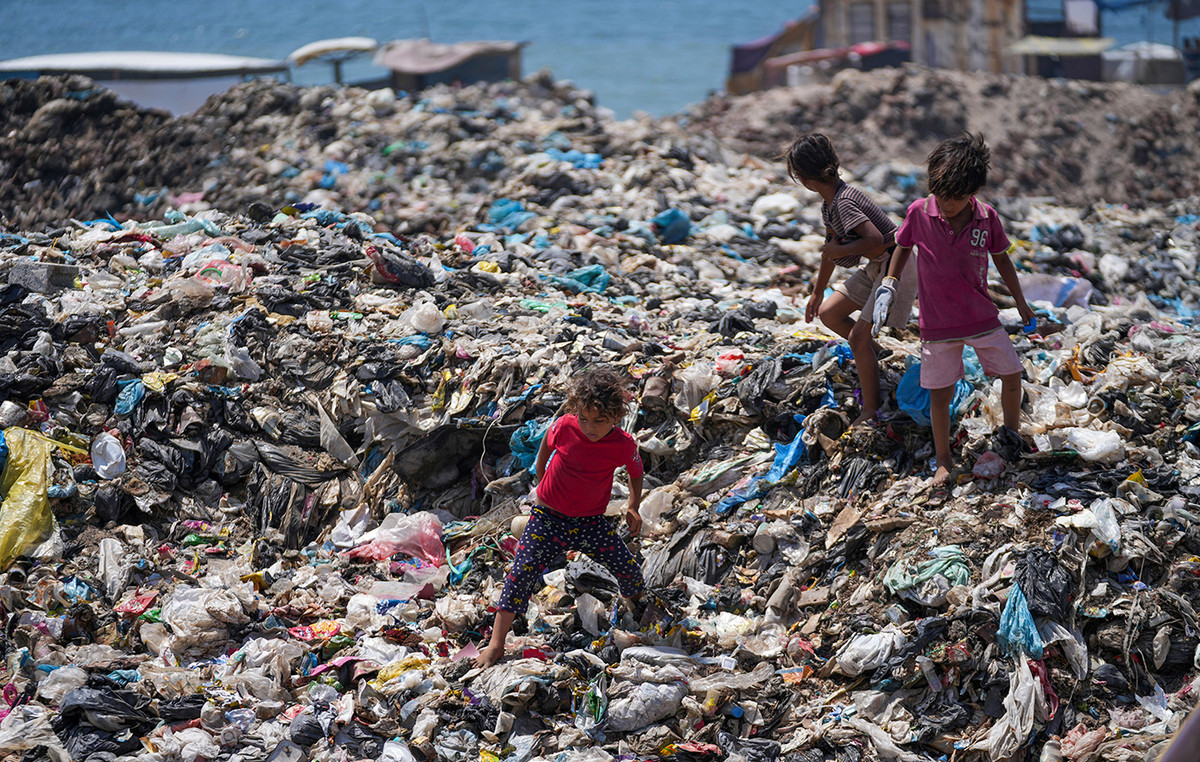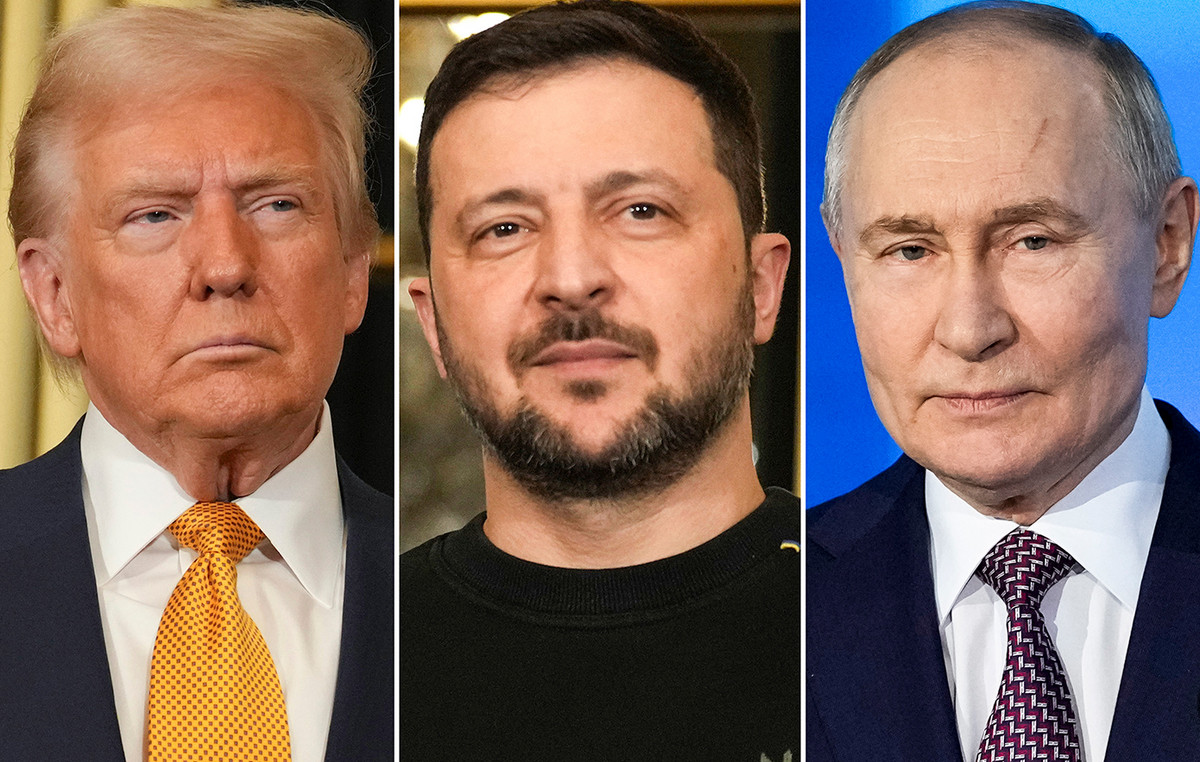President Luiz Inácio Lula da Silva (PT) spoke at the working session of the G7 summit this Sunday (21), in Japan. Lula criticized the ineffectiveness of the United Nations (UN) regarding conflict prevention and repudiated the attacks in Ukraine.
In a speech read at the session “Towards a peaceful, stable and prosperous world”, which brought together all the invited countries, Lula stated that “the multilateral mechanisms for conflict prevention and resolution no longer work”.
“We condemn the violation of the territorial integrity of Ukraine”, said the PT, reinforcing his disarmament position by stating that nuclear weapons “are not a source of security”, but “an instrument of mass extermination that denies our humanity and threatens the continuity of life in the Earth”.
Before reading the speech, Lula improvised on the need to address the issue of the war in Ukraine at the UN, which would not be calling meetings on the agenda.
In the speech, Lula said that the president of Russia, Vladimir Putin, “must explain himself” to the UN, as well as all the countries involved in the war.
On Twitter, the president published that he has “repeated almost to exhaustion that it is necessary to talk about peace” and that the fighting “increases human suffering, the loss of lives and the destruction of homes”.
Every day that fighting continues, human suffering, loss of life and destruction of homes increase.
I have repeated almost to exhaustion that it is necessary to talk about peace. No solution will last if it is not based on dialogue. We need to work to create the space… pic.twitter.com/rilEzS4hJS
— Lula (@LulaOficial) May 21, 2023
Lula again suggested that the UN Security Council, “more paralyzed than ever”, be reformed – a statement already made in a speech at the summit on Saturday (20).
In this Sunday’s speech, the president maintained the need for reform by recalling that the last 3 major wars were waged by members of the UN Security Council.
“Permanent members continue the long tradition of waging wars not authorized by the body. The result is that today we have a Council that does not deal with old problems, nor current ones, much less future ones.”
The president highlighted that Brazil has not fought conflicts with neighboring countries for over 150 years and that the country participates in nuclear non-proliferation agreements.
Finally, Lula drew attention to conflicts that take place beyond Europe.
“Israelis and Palestinians, Armenians and Azeris, Kosovars and Serbs need peace. Yemenis, Syrians, Libyans and Sudanese all deserve to live in peace. These conflicts should receive the same degree of international mobilization”, giving special attention to Haiti, which faces problems due to “decades of indifference regarding the real needs of the country”.
Read the speech in full
Hiroshima is the propitious setting for a reflection on the catastrophic consequences of all types of conflict. This reflection is urgent and necessary. Today, the risk of nuclear war is at its highest level since the height of the Cold War.
In 1945, the UN was founded to prevent a new World War. But multilateral conflict prevention and resolution mechanisms no longer work.
The world is no longer the same. Traditional wars continue to break out, and we see worrying setbacks in the nuclear non-proliferation regime, which will necessarily have to include the dimension of disarmament.
Nuclear weapons are not a source of security, but an instrument of mass extermination that denies our humanity and threatens the continuity of life on Earth.
As long as nuclear weapons exist, there will always be the possibility of their use.
It was for this reason that Brazil was actively engaged in the negotiations of the Treaty for the Prohibition of Nuclear Weapons, which we hope to be able to ratify soon.
In line with the Charter of the United Nations, we strongly repudiate the use of force as a means of resolving disputes. We condemn the violation of Ukraine’s territorial integrity.
At the same time, every day that fighting continues, human suffering, loss of life and destruction of homes increase.
I have repeated almost to exhaustion that it is necessary to talk about peace. No solution will last if it is not based on dialogue. We need to work to create the space for negotiations.
Nor can we lose sight of the fact that the challenges to peace and security currently plaguing the world go far beyond Europe.
Israelis and Palestinians, Armenians and Azerbaijanis, Kosovars and Serbs need peace. Yemenis, Syrians, Libyans and Sudanese all deserve to live in peace. These conflicts should receive the same degree of international mobilization.
In Haiti, we need to act quickly to alleviate the suffering of a population torn apart by tragedy. The scourge to which the Haitian people are subjected is the result of decades of indifference to the country’s real needs. For years, Brazil has been saying that Haiti’s problem is not just one of security, but, above all, one of development.
The gap between these challenges and the global governance we have continues to grow. The lack of Security Council reform is the unavoidable component of the problem.
The Council is more paralyzed than ever. Permanent members continue the long tradition of waging wars not authorized by the body, whether in pursuit of territorial expansion or in pursuit of regime change.
Even without being able to prevent or resolve conflicts through the body, some countries insist on expanding the Council’s agenda more and more, bringing new themes that should be dealt with in other spaces of the UN system.
The result is that today we have a Council that does not deal with old problems, nor current ones, much less future ones.
Brazil has lived in peace with its neighbors for over 150 years. We made Latin America a region without nuclear weapons. We are also proud of having built, together with African neighbors, a zone of peace and nuclear non-proliferation in the South Atlantic.
We are witnessing the emergence of a multipolar order which, if well received and nurtured, can benefit all.
The multipolarity that Brazil seeks is based on the primacy of international law and the promotion of multilateralism.
Re-enacting the Cold War would be foolish.
Dividing the world into East and West or North and South would be as anachronistic as it is innocuous.
It is necessary to break with the logic of exclusive alliances and false conflicts between civilizations.
It is urgent to reinforce the idea that cooperation, which respects differences, is the right path to follow.
Thank you very much.
(Posted by Gustavo Zanfer)
Source: CNN Brasil
Bruce Belcher is a seasoned author with over 5 years of experience in world news. He writes for online news websites and provides in-depth analysis on the world stock market. Bruce is known for his insightful perspectives and commitment to keeping the public informed.







